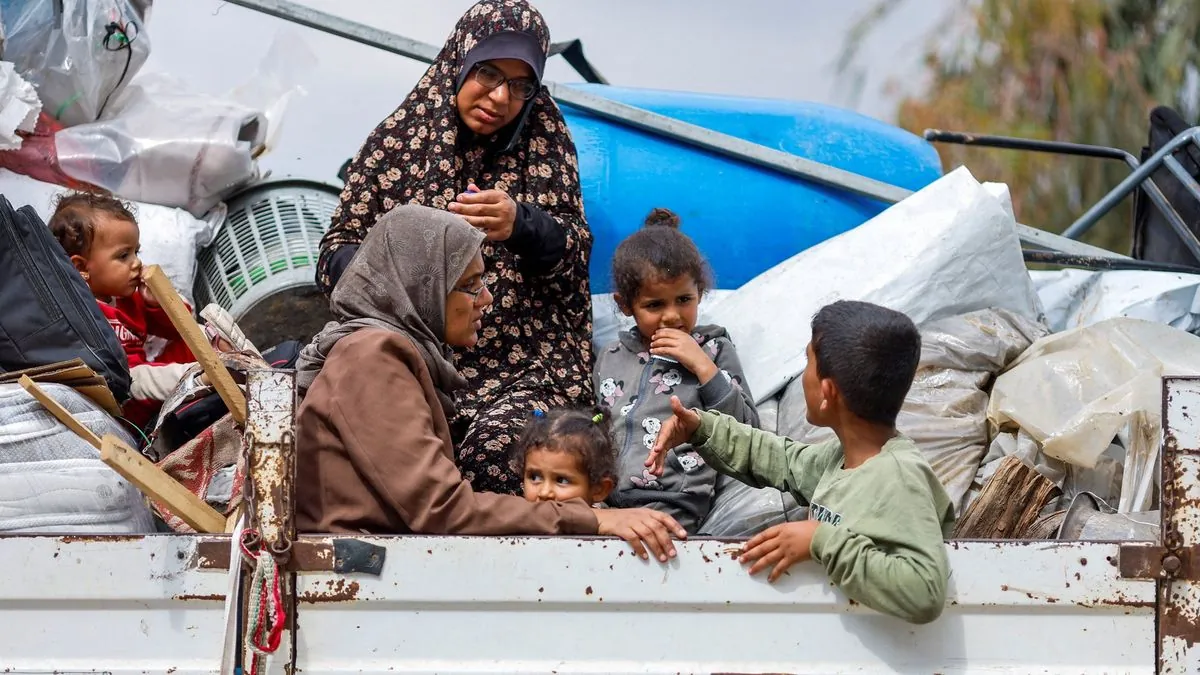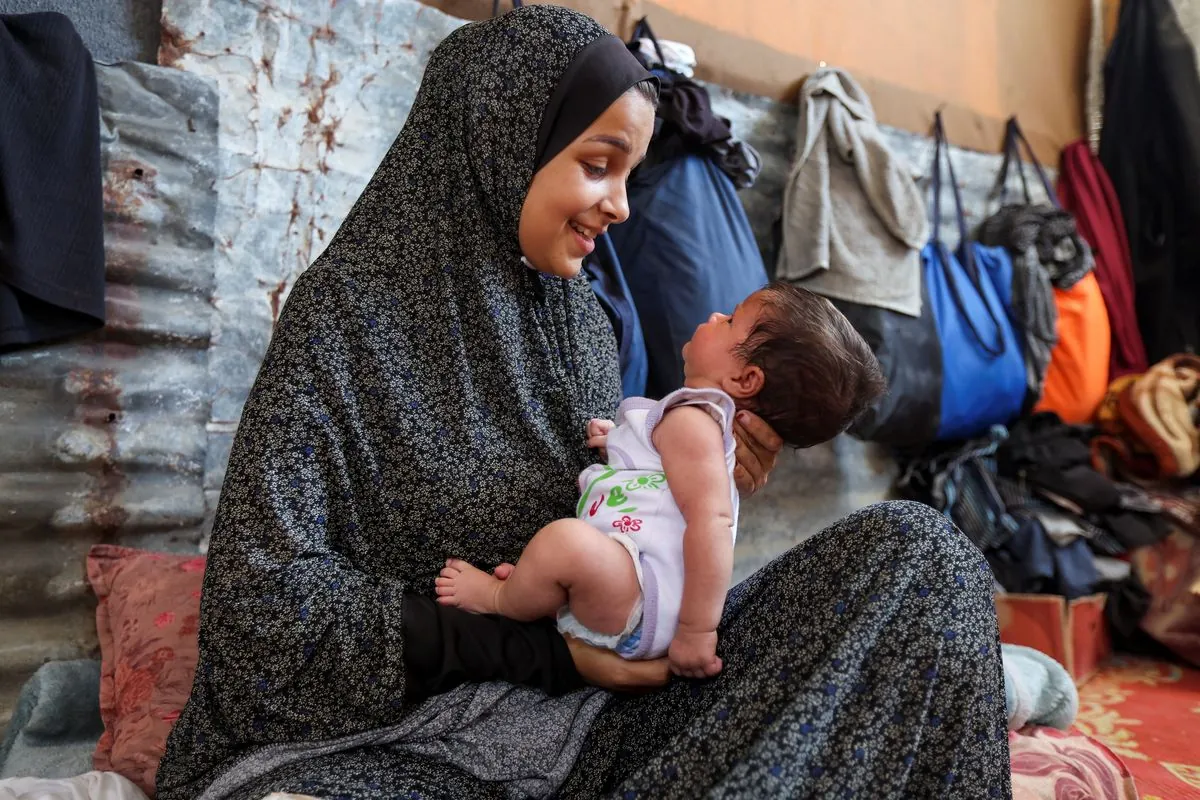Gaza's Newborns: 20,000 Babies Born Amid War and Hardship
Amidst ongoing conflict, Gaza welcomes 20,000 newborns. Mothers face unprecedented challenges, grappling with guilt and inadequate resources as they struggle to care for their infants in war-torn conditions.

In the midst of ongoing conflict, approximately 20,000 babies have been born in Gaza over the past year, according to UNICEF statistics. These newborns enter a world fraught with challenges, as their mothers navigate the complexities of raising children in a war-torn environment.
Rana Salah, mother of one-month-old Milana, expresses the guilt she feels for bringing her child into such difficult circumstances. "If it were up to me, I wouldn't have gotten pregnant or given birth during the war because life is completely different," she explains from a sweltering tent in Deir al-Balah, central Gaza Strip.
The current conflict, which began on October 7, 2023, has resulted in widespread destruction and displacement. Over 41,500 Palestinians have lost their lives, and the majority of Gaza's 2.3 million residents have been forced from their homes. This situation has created unprecedented challenges for new mothers and their infants.

The World Health Organization (WHO) has raised concerns about the health risks faced by newborns in Gaza. Rick Brennan, WHO's Eastern Mediterranean Regional emergency director, highlights the threat of malnutrition, particularly when mothers are unable to breastfeed due to lack of access to breast milk substitutes. Additionally, constant displacement exposes infants to increased risks of infection.
Gaza's healthcare system, already strained before the current conflict, now faces severe limitations in providing postnatal care. This situation is particularly concerning given that over 50% of Gaza's population is under 18 years old, and the territory has a high birth rate averaging 4 children per woman.
"I've reached the point where I cannot carry the responsibility for this girl ... Thank God I found some help here."
Manar Abu Jarad, whose youngest daughter Sahar was born on September 4, 2024, shares her struggles as a widowed mother in a UNRWA school shelter. She worries about providing for her children, using only one diaper a day for the baby due to financial constraints.
The ongoing conflict has exacerbated Gaza's pre-existing challenges. The territory has been under blockade since 2007, resulting in one of the world's highest unemployment rates and limited access to clean water and electricity. Despite these hardships, Gaza maintains a high literacy rate and a rich cultural heritage, with traditional arts and crafts still practiced.
As the conflict continues, mothers like Salah and Abu Jarad long for peace and a return to normalcy. Their stories reflect the resilience of Gaza's people, who strive to nurture new life amidst the chaos of war. The birth of these 20,000 babies serves as a poignant reminder of the urgent need for a resolution to the conflict and the restoration of basic human rights for Gaza's population.


































